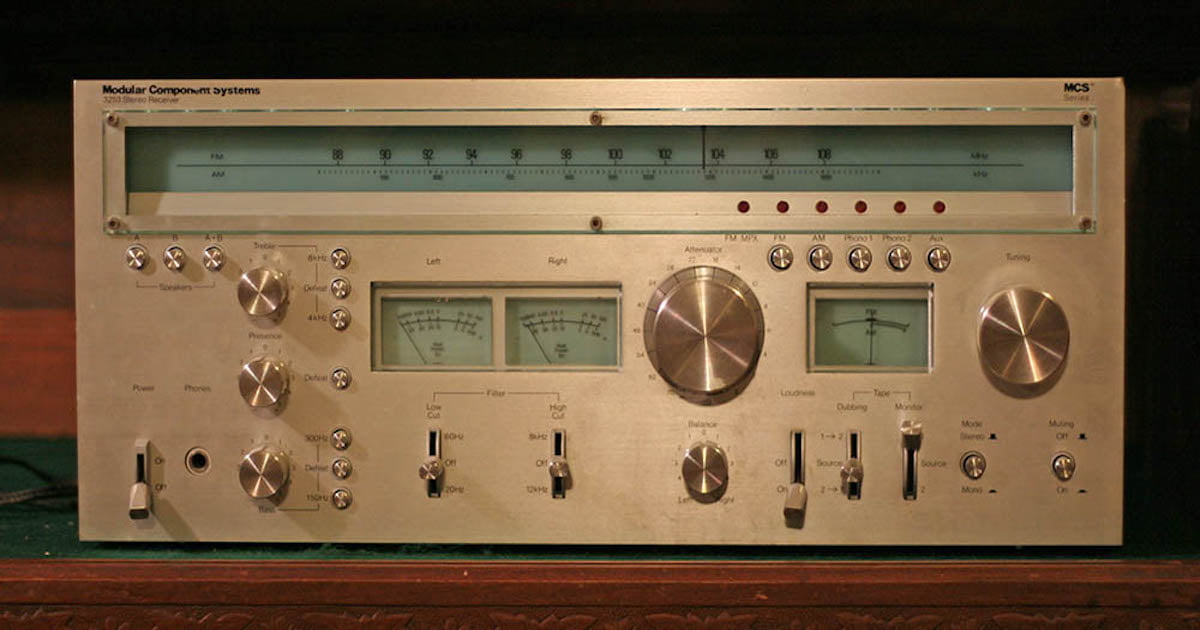It’s the time of year for saving money!
Another one of audio’s keenest sources of disagreement, among the many that are available, is the notion that after the purchase of a new component, playing it for some measure of time will improve the way it sounds. Most of us call that condition “break in.” Others still call it nonsense.
 There are many things in our everyday world that seem to suggest that the thing improves after a short amount of time. In the owner’s manual of the new car I purchased this past September was the recommendation that the car not be driven past a certain point for the first 500 miles to allow the car to break in. It’s even a good idea to let meat “rest” for a few minutes after cooking, and before carving, to allow the juices to move back to the center – thus making the meat more tender and juicy. So the notion that when something is brand new it needs a small fraction of time to settle in, or however you choose to term the condition, is all around us. Yet for some audiophiles this concept creates disagreement.
There are many things in our everyday world that seem to suggest that the thing improves after a short amount of time. In the owner’s manual of the new car I purchased this past September was the recommendation that the car not be driven past a certain point for the first 500 miles to allow the car to break in. It’s even a good idea to let meat “rest” for a few minutes after cooking, and before carving, to allow the juices to move back to the center – thus making the meat more tender and juicy. So the notion that when something is brand new it needs a small fraction of time to settle in, or however you choose to term the condition, is all around us. Yet for some audiophiles this concept creates disagreement.
One of the more pervasive explanations against equipment breaking in is the supposition that the component in question isn’t changing at all, our ears are. As the time spent listening to music on a new piece of equipment increases, any change of the aural perception of what we are hearing is simply the result of becoming more accustomed to the manner in which the music is portrayed. It is not, and has never been due to some mechanical or electrical change to the piece of equipment.
Others, not surprisingly, disagree.
Walking hand in hand with break in is warm up. This is best explained by the idea that a component needs a few hours to “warm up” for the best performance. How long that actually takes varies depending on the manufacturer and even the individual component. Both of these concepts are easily accepted by some and disregarded by others. As it is with so many other things in our hobby, personal opinion and engineering and science are very often at odds with each other.
 Over the years I have had numerous times when I heard a perceptible change to the sonic quality of the music after making a system change. One of the more surprising was an expensive main system power cord I had purchased. For two weeks, nothing. I was beginning to think I had wasted my money. Suddenly one day, music I knew very well and heard countless times sounded different. Specifically, better. Dramatically better. I could hear more clarity. Low frequencies were tight and more precise. Song after song, what I heard sounded better.
Over the years I have had numerous times when I heard a perceptible change to the sonic quality of the music after making a system change. One of the more surprising was an expensive main system power cord I had purchased. For two weeks, nothing. I was beginning to think I had wasted my money. Suddenly one day, music I knew very well and heard countless times sounded different. Specifically, better. Dramatically better. I could hear more clarity. Low frequencies were tight and more precise. Song after song, what I heard sounded better.
I have tried to explain this condition to myself in a way that does not support the power cord breaking in – because that was the only change to my system and the most logical, reasonable accounting of why the music suddenly sounded better.
And remember, this was music I had heard countless times and with which I was highly familiar. Thus far I am void of a plausible explanation.
Not solely restricted to cables, I’ve also heard changes ranging from minimal too downright unbelievable in the various component changes I’ve made over the last five years. When I last upgraded my DAC, for instance, not only was the sonic improvement immediately and demonstrably noticeable, it got remarkably better after playing for about three hundred hours.
There are those faction of disbelievers that demand proof. They seek a measurable, quantifiable justification of a new component or cable improving over time and until one is provided, they will continue to disbelieve. On some level, I understand this. Our hobby is steeped in science and engineering. From the electrical circuits that make the components work, to the physics of how reproduced sound behaves in a listening space, science and engineering is the bedrock of our hobby. Accepting a hypothesis without proof is something akin to believing that aliens built the pyramids – an idea some people actually support.
There are, however, others that believe something because they are exposed to a conclusion that is not measurable and scientifically supportable. To a certain degree, I fall into that category. When I hear a song I’ve played countless times sound better after a new component has had the opportunity to break in, and barring any other logical explanation, my only conclusion is that the component has in some way changed for the better.
However it may be explained, are not better sonics, or if you prefer, the perception of better sonics our main goal?
 Let’s suppose for a brief minute that we are simply convincing ourselves of a sonic improvement. Shoot, we’ve spent all this money buying the whatever, we obviously want it to enrich our musical experience, and because we desire, our ears / brain delvers. If that is actually the case, if modern science cannot offer any logical, reasonable explanation, if we ourselves cannot come up with an empirical conclusion, yet we maintain we hear an improvement, how do we explain this? How do we justify what doesn’t make sense?
Let’s suppose for a brief minute that we are simply convincing ourselves of a sonic improvement. Shoot, we’ve spent all this money buying the whatever, we obviously want it to enrich our musical experience, and because we desire, our ears / brain delvers. If that is actually the case, if modern science cannot offer any logical, reasonable explanation, if we ourselves cannot come up with an empirical conclusion, yet we maintain we hear an improvement, how do we explain this? How do we justify what doesn’t make sense?
Maybe justification isn’t all that terribly important. Maybe science and engineering should sit this one out. A wise man once said: “When you have eliminated the impossible, whatever remains, however improbable, must be the truth.” And the source of that quote? Why Sherlock Holmes, of course.
Belief is in the eyes, and in this case, the ears of the listener. Whether that belief is supported by empirical data or simply mind over matter is irrelevant. All that really matters is that we have an increased enjoyment of the music.








